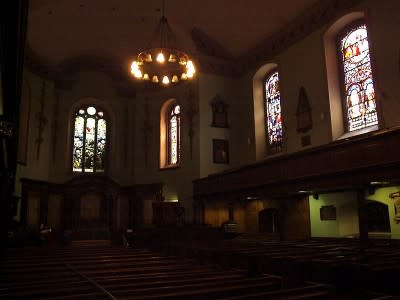Supreme Court may consider another religious case after prayer decision
The Supreme Court has revived discussion about a second major case about the separation of church and state that it will consider for acceptance in two weeks’ time.
Last May, the Court took the case of Town of Greece v. Galloway, which it decided on Tuesday. In the Town of Greece decision, a divided Court upheld prayers at public government meetings, in what could be a historically significant moment for the religious Establishment clause in the First Amendment.
But also a year ago, the Court put on hold consideration of a second case, Elmbrook School District v. Doe, which involves the rental and use of a church sanctuary to host graduation ceremonies for two public schools.
After it announced the Town of Greece decision on Tuesday, the Court put the Elmbrook School District v. Doe petition back on its calendar for private conference consideration for May 15, almost one year to the day after the Justices placed the Elmbrook case in limbo.
The Elmbrook case is one of several potential cases that the Court could eventually consider about church-state issues, but the Elmbrook case itself is hardly new. A petition to hear the case was first submitted in December 2012, and it was listed on the Justice’s private conference list seven times, before the Court took no action on the petition on May 16, 2013.
The case dates back 14 years, when in Brookfield, Wisconsin, a western suburb of Milwaukee, two local high schools started to host its graduation exercises in the sanctuary of Elmbrook Church, an evangelical congregation not affiliated with any denomination.
The practice began in 2000 with a choice by one of the high schools, at the request of its graduating class, to move the ceremony out of the school’s gym, because of limited conditions there. The church’s leaders and its congregation had no role in the graduation celebration, and there was no one on hand to offer any kind of religious counseling.
But for some current and former students and their parents, the site itself was the problem, with its religious symbolism and significance. They said the exposure to artifacts of faith offended them and compromised the experience of graduating.
The lawsuit continued, even though the district stopped using the sanctuary, as the challengers took the case on to the 7th U.S. Circuit Court of Appeals.
A three-judge panel there agreed with a trial judge, finding no First Amendment religion problem. But the full circuit court reconsidered. Splitting 7-3, that court found that the Elmbrook Church site could not avoid being coercive for the students and their younger brothers and sisters attending the ceremony.
After Tuesday’s decision in Town of Greece, the concept of coercion, religion and the First Amendment could be redefined by the Court’s five conservative members.
On a National Constitution Center podcast, two experts saw the potential for the Court’s majority to expand its Town of Greece reasoning to cases like Elmwood and others.
Link: Download podcast (right click and save)
“I think we will see many more cases coming up involving student delivered prayers at high school graduations, the circuits are split on that issue, and eventually the Supreme Court will take one of those cases,” said Erwin Chemerinsky, from the University of California, Irvine School of Law.
Scott Gaylord from Elon University said there were indications that Supreme Court Justice Samuel Alito was interested in the Mount Soledad cross case in San Diego.
“You may get some [religious] display cases that make it to the Court,” Gaylord said. “The Roberts court, which has been extremely interested in speech issues, is now moving into the religion arena. We are going to get some very important decisions and that’s going to have a big impact going forward.”
Recent Constitution Daily Stories
Podcast: Is the Supreme Court taking down the wall between church and state?
Constitution Check: Is the line between church and state shifting?


